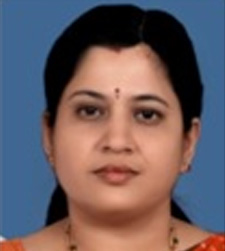Dr. Sarita G Bhat
Professor

Department of Biotechnology,
Cochin University of Science and Technology,
Kochi-22, Kerala, India.
+91 484 2576267.
saritagbhat@gmail.com
sgbhat@cusat.ac.in
Dr. Sarita G Bhat completed her Masters in Biochemistry from University of Bombay (studying at the (Royal) Institute of Science, Mumbai). Even prior to her doctoral Research, she worked as research fellow for two years (1990-92) on the Department of Ocean Development Research Project on the use of micro-algae as a non-conventional source for the production of chemicals (glycerol, b-carotene and single celled protein). She received her doctoral degree from Cochin University of Science & Technology in 1998. Her teaching career began as Ad hoc lecturer in 1998 in the Department of Marine Biology, Microbiology and Biochemistry, Cochin University of Science and Technology. Dr. Bhat joined as lecturer in Department of Biotechnology, Cochin University in 1999 and is currently Professor and Head of the Department. She is also chairperson of the Board of Studies in Biotechnology in Cochin University and member -BOS in several others.
A biochemist by training, her passion for microbiology, saw her completing her Ph.D on environmental vibrios and their pathogenesis. This motivated her continuing work on phages, plasmids and other elements involved in horizontal gene transfer. Current research areas include:
- Bacteriophages and their genes for application in biocontrol of pathogenic bacteria and their biofilms;
- Metagenomics of the microbial communities (mangrove ecosystems and gut microbiota in fishes) to study the biodiversity and function; a treasure trove of novel neutraceuticals and probiotic.
- Bioactive compounds from the marine microorganisms, deep-sea organisms, endophytic fungi from marine algae; Bacterial melanin and their application in inflammation and cancer.
- Role of gut microbiome in disease conditions; To understand the role of diet and probiotics on gut microbiome.
- study of microbiomes of implanted medical devices and modifications of catheter biopolymer to reduce biofilm formation.